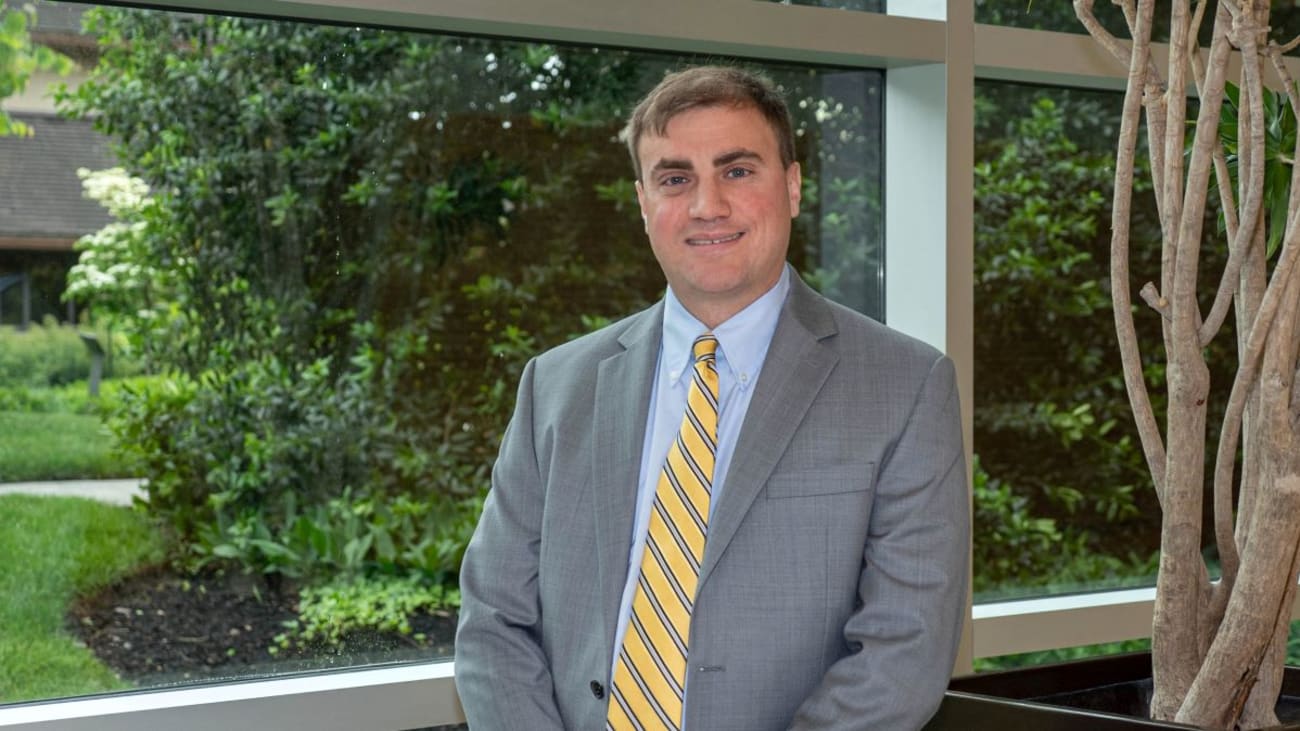

Joseph Van Galen, MD, MS, Chief Fellow in the Hematology/Oncology Fellowship Program at Fox Chase Cancer Center, was honored with the American Society of Clinical Oncology’s (ASCO) Conquer Cancer Young Investigator Award.
“Receiving this award is an incredible honor. The funding will allow me to remain engaged with productive mentors and collaborators in the Fox Chase community and to see a multidisciplinary project through to completion,” said Van Galen, whose research interests include translational immunology. He is also active in clinical research, both interventional and observational, with a focus in malignant hematology and transplantation and cellular therapies.
The ASCO award recognizes the work of young researchers and provides funding to encourage and promote quality research in clinical oncology. The program works to fund physicians during the transition from fellowship to their first faculty appointment. Researchers are selected for the award based on their research projects, which are conducted under the guidance of an experienced mentor in their area of interest.
Those selected for the award receive a one-year grant of $50,000 to support research expenses and travel for the Conquer Cancer Grants & Awards Ceremony at the ASCO Annual Meeting, which was held May 30-June 3 in Chicago.
Van Galen’s project has been supported by the mentorship of Matthew Zibelman, MD, an Associate Professor in the Department of Hematology/Oncology at Fox Chase. To design and conduct the project, Van Galen has also collaborated with two other members of the Fox Chase faculty, Johnathan Whetstine, PhD, Director of the Cancer Epigenetics Institute (CEI) and Co-Leader of the Nuclear Dynamics and Cancer Research Program, and Hayan Lee, PhD, an Assistant Professor in the Nuclear Dynamics and Cancer Research Program and a member of the CEI. The project is designed to help doctors better understand how to diagnose and treat immune-related adverse events, a group of cancer-treatment complications.
A large and growing number of cancers are treated with immunotherapy drugs that work by helping patients’ immune systems recognize and kill abnormal cancer cells. These drugs can also lead to overactivation of the immune system, leading to attacks on healthy tissues. For a group of immunotherapy drugs called checkpoint inhibitors, these complications are usually in the form of immune-related adverse events that can affect virtually any tissue in the body.
Van Galen and Zibelman have designed a clinical trial that will study how patients respond to treatment for immune-related adverse events. Funding from ASCO will support an analysis of patient blood samples that will be used to study in detail how immune cells are modulated by complications of checkpoint inhibitor therapies.
“As a hematologist and oncologist, I am drawn to studies of immunology that I hope will improve care for patients with difficult-to-treat cancers in the future,” said Van Galen. “With this award, I’m excited to pursue the research question at hand and to continue to grow as an academic researcher entering the next stage of my career.”


